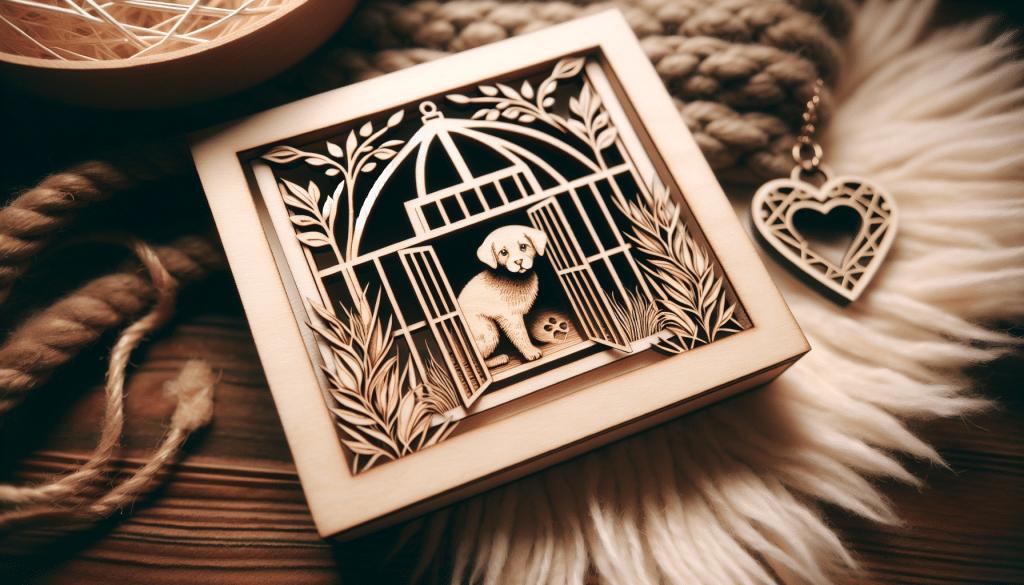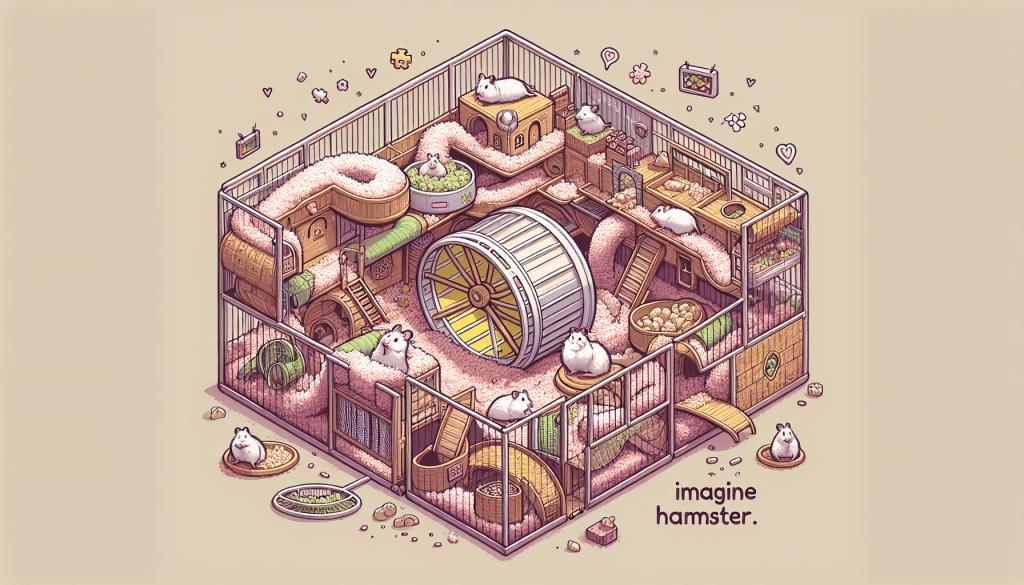So, you’ve decided to enter the magical world of pet ownership, huh? Well, I’ve got news for you, my friend – it’s a wild ride! But don’t fret, because I’m here to tell you all about the easiest way to find your perfect furry sidekick: pet adoption! Say goodbye to sketchy classified ads and questionable breeders, and say hello to a whole new world of unconditional love and endless cuddles. Whether you’re a cat person, a dog person, or a “I’ll take one of everything” kind of person, pet adoption has got you covered. All you need is a little patience, a loving heart, and maybe some lint rollers. So, buckle up and get ready to embark on the adventure of a lifetime – finding your perfect companion has never been easier (or funnier).

Understanding Pet Adoption
Pet adoption and rescue are the processes of finding a new home for animals in need. This could be due to various reasons such as abandonment, neglect, or the owners being unable to care for them any longer. Stray animals or those surrendered by their previous owners are typically taken in by animal shelters or rescue organizations. Through the adoption process, these animals are placed into loving homes where they can receive the care and attention they deserve.
Benefits of Adopting a Pet
Adopting a pet comes with numerous benefits. First and foremost, you are giving a second chance at life to an animal in need. By adopting, you are providing a loving home and a forever family to a furry friend who may have experienced trauma or neglect in the past. It is a truly rewarding experience to see the positive transformation in a rescued pet’s life.
Additionally, adopting a pet is often more cost-effective than buying from a breeder or pet store. Animal shelters and rescue organizations typically charge a nominal adoption fee to help cover the cost of veterinary care, vaccinations, and other services the animal receives while in their care. This fee is significantly lower than the cost of purchasing a pet from other sources.
Moreover, when you adopt a pet, you not only save the life of that particular animal but also create space for another animal in need to be taken in by the shelter or rescue organization. It’s a win-win situation for both the adopted pet and future animals that can now find safety and shelter.

Common Misconceptions About Pet Adoption
There are some common misconceptions that surround pet adoption. One of the most prevalent is the belief that animals in shelters or rescue organizations are somehow flawed or damaged. This couldn’t be further from the truth. Many animals end up in shelters due to unforeseen circumstances such as their owners’ health issues, financial difficulties, or lifestyle changes. These animals are often just as loving, loyal, and well-behaved as pets from other sources.
Another misconception is that shelter pets are generally older and not suitable for families with children. While there are older animals in shelters, they can be excellent companions for individuals or families. Additionally, shelters offer a wide range of ages, breeds, and sizes, allowing you to find the perfect pet to fit your lifestyle.
Lastly, some people believe that if you want a specific breed or type of pet, you won’t find it in a shelter. However, breed-specific rescues exist for nearly every breed out there. If you have your heart set on a certain type of pet, there are dedicated organizations that specialize in rescuing and rehoming specific breeds. So, don’t let these misconceptions discourage you from exploring pet adoption as a viable option.
Types of Pets Available for Adoption
When it comes to pet adoption, there is a wide variety of animals waiting for their forever homes. Let’s explore the different types of pets you can find in shelters and rescue organizations.
Dogs and Puppies
Dogs and puppies are among the most common pets available for adoption. Whether you’re looking for a playful pup to bring energy into your life or a calm and wise older dog, the variety of breeds and sizes available in shelters is astounding. From tiny Chihuahuas to large Great Danes, there’s a furry friend waiting for you.
Cats and Kittens
If you’re more of a cat person, shelters are overflowing with adorable cats and kittens just waiting to be adopted. Whether you prefer the independence of an adult cat or the playful antics of a kitten, you’re sure to find a perfect feline companion to keep you company.
Small Mammals
While dogs and cats may be the most popular choices for adoption, shelters and rescue organizations often have small mammals seeking homes as well. From rabbits and guinea pigs to hamsters and ferrets, these furry critters can make wonderful additions to your family.
Birds
For those who prefer feathered friends, bird rescues often have a variety of avian species available for adoption. Whether you’re looking for a talkative parrot or a melodious canary, adopting a bird can bring joy and song into your life.
Reptiles and Amphibians
If you’re interested in reptiles or amphibians, some shelters and rescue organizations specialize in rescuing and finding homes for these unique pets. Whether it’s a turtle, a snake, or a frog, you can find your scaly or slimy companion through adoption.
Exotic Animals
For those with a taste for the extraordinary, some shelters and rescue organizations may also have exotic animals available for adoption. From hedgehogs and sugar gliders to potbellied pigs and iguanas, you never know what rare and fascinating creature you might find.

Preparing for a New Pet
Before bringing a new pet into your home, there are some important considerations to keep in mind. Being well-prepared will ensure a smooth transition for both you and your new furry friend.
Assessing Your Lifestyle and Space
It’s crucial to assess your lifestyle and living space before adopting a pet. Different animals have different needs, and it’s important to choose a pet that fits well with your daily routine, activity level, and available space. For example, a high-energy dog might not be the best choice if you live in a small apartment without a yard, whereas a low-maintenance cat might be a perfect fit.
Understanding the Responsibilities
Owning a pet comes with responsibilities. It’s important to understand the time, effort, and financial commitment required to properly care for an animal. From daily feeding and exercise to regular veterinary visits and grooming, pets require attention and care throughout their lives. Make sure you are ready to take on these responsibilities before bringing a pet into your home.
Preparing Your Home for a Pet
Before bringing your new pet home, it’s essential to pet-proof your living space. Remove any toxic plants or substances, secure electrical cords, and ensure all potential hazards are eliminated. Create a safe and comfortable space for your pet, providing them with their own bed, toys, and essential supplies.
Gathering Necessary Supplies
To ensure a smooth transition for your new pet, gather all the necessary supplies before bringing them home. This includes food and water bowls, bedding, toys, litter boxes, scratching posts, and any other items specific to the type of pet you are adopting. Having everything ready beforehand will help your pet settle in quickly and feel at ease in their new environment.
Where to Look for Your Perfect Pet
Now that you’re ready to adopt a pet, where do you look? Here are some popular options for finding your perfect companion.
Local Animal Shelters
Animal shelters are often the first choice for many prospective pet owners. These shelters rescue and care for a wide variety of animals until they can find them loving homes. Check your local area and visit nearby animal shelters to see the wonderful pets they have available for adoption.
Rescue Organizations
In addition to animal shelters, there are numerous rescue organizations dedicated to specific breeds or types of animals. These organizations focus on rescuing and rehabilitating animals in need of a home. If you have a specific breed in mind, reaching out to a breed-specific rescue can be a great option.
Online Adoption Platforms
The internet has revolutionized the pet adoption process, with many online platforms connecting potential adopters with animals in need. Websites such as Petfinder and Adopt-a-Pet allow you to search for pets based on location, breed, size, and other criteria. You can browse through photos and descriptions of available animals, making it easier to find your perfect match.
Breed-Specific Rescues
As mentioned earlier, breed-specific rescues are excellent resources for finding particular breeds or mixes. These rescues have a deep understanding of the breed’s characteristics and can help match you with the right pet based on your preferences and lifestyle.
Animal Fostering Networks
Foster networks play a vital role in helping animals find permanent homes. Fostering enables potential adopters to have a trial period with a pet before making a lifelong commitment. Reach out to local foster networks and see if they have any pets available for adoption or foster-to-adopt programs.
Visiting Potential Pets
Once you have identified potential pets, it’s time to visit them and see if they are a good fit for your home and lifestyle.
Scheduling Meet-and-Greet Sessions
Contact the shelter, rescue organization, or foster network to schedule meet-and-greet sessions with the animals you are interested in adopting. This will allow you to get a sense of their temperament, compatibility with your family or other pets, and overall behavior.
What to Observe During Visits
Observe the pet’s behavior during your visits. Pay attention to their energy level, their reaction to your presence, and their interaction with other people or animals around them. Look for signs of friendliness, fear, or aggression. It’s essential to choose a pet that matches your lifestyle and personality.
Interacting with Different Animals
If you are torn between multiple animals, take the time to interact with each one. Play with them, pet them, and gauge their response to your interaction. This will help you assess their compatibility and choose the pet that you feel the strongest connection with.
Questions to Ask the Shelter or Rescue
During your visits, don’t hesitate to ask questions. Inquire about the pet’s background, any known health issues, behavior quirks, and how they interact with other pets or children. The shelter or rescue staff should be knowledgeable and happy to provide you with all the information you need to make an informed decision.
Understanding Pet Needs and Behavior
As a new pet owner, it’s important to understand the needs and behavior of your furry friend. This knowledge will help you provide the best possible care and create a strong bond with your pet.
Identifying Signs of Good Health
When you adopt a pet, it’s essential to be able to recognize signs of good health. A healthy pet will have bright eyes, a shiny coat, and a good appetite. Their behavior will be alert and responsive, and they should exhibit normal bathroom habits. Regular visits to the veterinarian will help ensure your pet’s ongoing health and well-being.
Behavioral Assessments and Personality Matching
Many shelters and rescue organizations conduct behavior assessments and personality matching to help find the right home for each animal. These assessments evaluate the pet’s temperament, sociability, and compatibility with different environments. By utilizing this information, shelters can make more accurate pet-to-owner matches, increasing the likelihood of a successful adoption.
Understanding Common Behavioral Issues
It’s important to be aware of common behavioral issues that may arise with adopted pets. Separation anxiety, fearfulness, or aggression can sometimes manifest in animals that have experienced traumatic events in the past. Patience, consistent training, and positive reinforcement are key tools in addressing and overcoming these behavioral challenges. It’s important to seek guidance from professionals or trainers if needed.
Considering Special Needs of Certain Pets
Some pets have special needs that may require additional attention and care. This could include physical disabilities, medical conditions, or behavioral challenges. When considering adopting a pet with special needs, familiarize yourself with the required care and ensure you can meet their unique needs. These pets often require extra love and a supportive environment, but they can bring immense joy and gratitude into your life.
The Adoption Process
Once you have found your perfect pet, it’s time to navigate the adoption process.
Completing the Application Form
Most shelters and rescue organizations require potential adopters to complete an application form. This form helps staff assess your suitability as a pet owner and ensures that the animal is placed in a safe and loving environment. Be thorough and honest when filling out the application.
Understanding Adoption Policies and Fees
Each shelter or rescue organization has its own adoption policies and fees. It’s important to understand these policies, including any restrictions on pet ownership, return policies, and the adoption fee. The fee often covers the cost of veterinary care, vaccinations, spaying or neutering, and microchipping.
The Importance of Pet Adoption Contracts
Many shelters and rescues require adopters to sign a pet adoption contract. This contract outlines the responsibilities and expectations of both the adopter and the shelter or rescue. It typically includes clauses related to proper care, commitment to the pet’s well-being, and the consequences of non-compliance.
Post-Adoption Support and Resources
Some shelters and rescues offer post-adoption support and resources to help ensure the success of the adoption. This may include follow-up visits, behavior consultations, training classes, and access to a network of experienced pet owners. Take advantage of these resources to provide the best possible life for your newly adopted pet.
Bringing Your New Pet Home
After completing the adoption process, it’s time to bring your new pet home and help them settle in.
The First Day: Setting Up a Safe Space
On the first day, create a safe and comfortable space for your new pet. Set up a cozy bed, provide food and water, and introduce them to their designated bathroom area. Give them time to explore their surroundings at their own pace, ensuring they feel secure and welcomed.
Introducing Your Pet to Its New Environment
Introduce your new pet to their new environment gradually. Start by allowing them to explore one room at a time, gradually increasing their access to the rest of the house. Provide plenty of reassurance, love, and positive reinforcement during this adjustment period.
The Adjustment Period
It’s important to remember that the adjustment period for a new pet can vary. Some animals may settle in quickly, while others may take weeks or even months to fully adjust. Be patient and understanding during this time, and never hesitate to reach out to professionals or experienced pet owners for guidance.
Establishing a Routine
Establishing a routine is essential for your new pet’s well-being. Feed them at the same time each day, establish regular bathroom breaks, and set aside dedicated playtime and exercise sessions. Consistency and structure will help your pet feel secure and confident in their new home.
Post-Adoption Care
Once your pet is settled in, it’s important to prioritize their ongoing care and well-being.
Veterinary Care and Vaccinations
Regular veterinary care is crucial for maintaining your pet’s health. Schedule annual check-ups, vaccinations, and any necessary medical treatments. Regular vet visits allow potential health issues to be identified early on, ensuring prompt treatment and a long and healthy life for your pet.
Nutrition and Diet
Ensure your pet’s nutritional needs are met by providing them with a balanced and appropriate diet. Consult with your veterinarian to determine the best food options for your pet’s age, breed, and any specific dietary requirements. Proper nutrition plays a key role in your pet’s overall well-being and longevity.
Training and Socialization
Training and socialization are important aspects of pet ownership. Whether you choose to enroll in obedience classes or work on training at home, consistency and positive reinforcement are key. Proper training will help establish boundaries, prevent behavioral issues, and strengthen the bond between you and your pet.
Regular Exercise and Play
Regular exercise and playtime are essential for your pet’s physical and mental well-being. Engage in activities that cater to their natural instincts and energy levels. Whether it’s daily walks, interactive toys, or games of fetch, regular exercise and play will keep your pet happy, healthy, and mentally stimulated.
Continued Learning and Growth with Your Pet
As a pet parent, the learning and growth never stop. There are numerous resources and opportunities to enhance your knowledge and bond with your furry friend.
Educational Resources for Pet Owners
Take advantage of educational resources for pet owners. Books, online articles, and reputable websites offer valuable information on pet care, training techniques, and behavior management. Stay informed and continue learning to provide the best possible care for your pet.
Attending Training and Obedience Classes
Training and obedience classes are not just for puppies. Dogs of all ages can benefit from structured classes that provide guidance, socialization, and learning opportunities. These classes not only improve your pet’s behavior and manners but also strengthen the bond between you and your furry companion.
Exploring New Activities with Your Pet
Expand your pet’s horizons by exploring new activities together. This could include agility training, canine sports, hiking, or even therapy work. Find activities that align with your pet’s abilities and interests, providing them with mental and physical stimulation while fostering a deeper connection with you.
Evolving as a Pet Parent
As your pet grows older, your role as a pet parent evolves as well. Adjusting to their changing needs and providing appropriate care will ensure their comfort and well-being in their golden years. Stay attentive to signs of aging and health issues, and consult with your veterinarian to ensure your pet’s continued happiness and quality of life.
When it comes to pet adoption, there is a world of love and companionship waiting for you. By understanding the process, considering your lifestyle, and connecting with the right shelter or rescue organization, you can find your perfect pet and provide them with a forever home. Embrace the journey and enjoy the many joys and adventures that come with being a pet parent. Your adopted pet will be forever grateful for the love and care you provide, and you will have a companion who brings happiness and laughter into your life every day.



